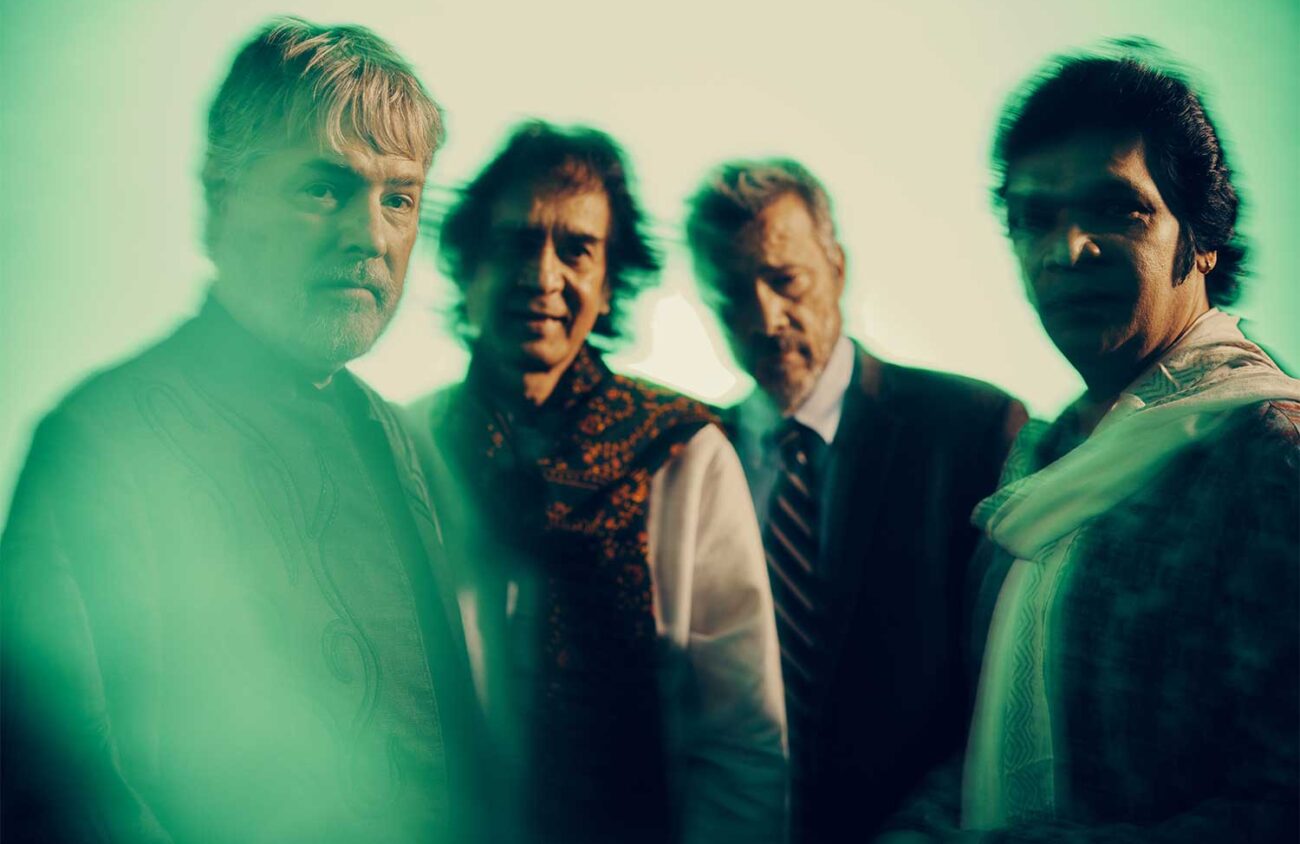Béla Fleck, the musician who brought the banjo from bluegrass to pop and back again, will perform at The Shedd on Monday, Nov. 20, on his As We Speak tour with Zakir Hussain on the tabla, Edgar Meyer on the double bass and Rakesh Chaurasia on the bansuri.
A New York City native, Fleck has been playing the banjo since 1973 and is often credited as a pioneer of the modern banjo. He has been involved in many musical groups throughout his career, but he is best known for his work with Béla Fleck and the Flecktones, a quartet he started in 1988.
Eugene Weekly spoke with Fleck the day after his first stop at The Palladium in Carmel, Indiana. The building felt familiar, he says, because it was designed by one of the same architects, David M. Schwarz, who built the Nashville Symphony’s Schermerhorn Symphony Center.
Meyer and Fleck wrote a banjo-bass double concerto together for the Nashville Symphony in 2003. Meyer, who is best known for his wide range of musical styles, has won five Grammy Awards, two of which he won alongside Fleck. The symphony asked the duo to write another concerto to commemorate the opening of the Schermerhorn Symphony Center, but to make it a trio.
“Zakir was at the top of the list,” Fleck says. Hussain received a National Heritage Fellowship in 1999 from the National Endowment of the Arts and won a Grammy for his collaborative album Global Drum Project in 2009.
Fleck performed with the Nashville Symphony alongside Hussain and Meyer when the Schermerhorn first opened in 2006. Hussain later introduced Fleck to Chaurasia, who’s “one of the great bamboo flute players of the Indian tradition,” Fleck says, and from there everything clicked.
“All of a sudden it felt like a band. Not like three kind-of-classic guys that all sound good playing together,” he says. “Something else happened. These instruments had never been heard together. And there’s a lot of possibilities for textures and composition and improvisation.”
Speaking of improvisation, Fleck and the others often improvise on stage. When asked if that ever goes wrong, he laughed.
“It never doesn’t go wrong unless you decide that wrong is right, and then it always goes right,” Fleck says. “A mistake is when you play something you didn’t intend. But a lot of times when you do that, you’ll have an opportunity to do something really special built out of what appeared to be a mistake.”
As Fleck puts it, As We Speak is all about the musicians “trying to communicate through our instruments,” and every note is a call asking for a response. This dialogue between instruments is most common in jazz, but Fleck has carried the technique with him through bluegrass, country and beyond.
He also takes pride in letting his instrument do the speaking. “I think when you take away lyrics, you allow the listener to have a very different experience, a more personal experience, because it’s not like, ‘Oh, here’s what this is,’” he says. “When music is all instrumental, there’s a different opportunity.”
Fleck was gifted his first banjo by his grandfather when he was 15 years old. He had always wanted a banjo, he says, but “never would have had the nerve to get one.” On the train ride home, a stranger tuned the instrument for him and gave him his first lesson.
“I was just hooked from then on,” Fleck says. “I went from a kid who was interested in music to being a Type A, freakazoid, practically obsessive banjo player.”
Fleck received his first Grammy just 23 years after he picked up the banjo for the first time. Not only has Fleck won 15 of the 35 Grammys he was nominated for, but he has also won in six different music genres: country, pop, jazz, classical, folk and bluegrass. Despite these achievements, Fleck is as humble as can be.
“My job is to make believe playing banjo is really important,” Fleck says. “It’s a crazy time. And sometimes it feels pretty narcissistic to be caring about these petty little things like how your improvisation went that night. But when it’s about communication, and about making a whole room of people feel connected, that feels worthwhile.”
Béla Fleck’s As We Speak tour stops in Eugene 7:30 pm Monday, Nov. 20, at The Shedd Institute; $38.50 to $79, all ages, at TheShedd.org.
